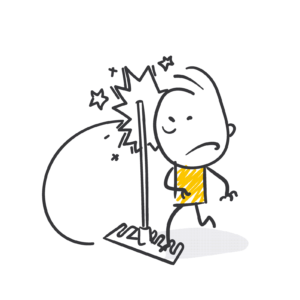Anne Heche died on August 14, 2022, following a tragic car accident in Los Angeles, California. The fiery crash left Heche brain dead and comatose, but she was kept on life support for seven days in order to identify a suitable recipient for her organs, which was in line with the actress’ wishes, according to a statement from her publicist. After a successful match with organ donors, Heche was removed from life support and she died shortly thereafter. She was 53 years old.
The Emmy Award-winning actress is survived by two young sons and her mother. Her eldest son, Homer Heche Laffoon, is 20 years old and is from her marriage with ex-husband Coleman Laffoon. Her youngest son, Atlas Heche Tupper, is 13 and his father is Canadian actor James Tupper, with whom Heche had a 10-year relationship following her divorce from Laffoon.
Unfortunately, Heche did not leave behind a formal will or a definitive plan for her sons or her estate. Now, her family is left in conflict without clear direction moving forward and this means there will most likely be lengthy and costly court battle to determine who receives Heche’s estate and, more importantly, who will care for Atlas, her minor son.

Who will be in charge of Anne Heche’s estate?
According to a court petition filed by her eldest son, Homer, on August 31, 2022, Heche died without a will – called “intestate” – and Homer requested that he be named executor of his late mother’s estate. However, on September 15th, 2022, Heche’s ex-boyfriend James Tupper filed a probate petition objecting to Homer’s bid, claiming that Heche e-mailed him a copy of her will in 2011, leaving Tupper in charge of her estate.
In a report by Rolling Stone, Tupper says Heche nominated him to handle her affairs, allegedly stating in her e-mail, “My wishes are that all of my assets go to the control of Mr. James Tupper to be used to raise my children and then given to the children.”
Tupper requested that the court honor Heche’s final wishes and deny Homer’s petition, as the petition incorrectly alleges that Heche died intestate. In Tupper’s petition, he questioned both Homer’s ability to carry out the executor role and Homer’s motives, noting that “Homer is only 20 years of age and is unemployed, and was estranged from [Heche] at the time of her death.”
We cannot know for certain whether or not Anne Heche had a will or if the last wishes Tupper describes are valid. Given that there is so much confusion surrounding her final wishes, Heche most likely did not have any trusts set up either. Unfortunately, Heche’s failure to plan is likely to create a number of major problems for her two sons and other surviving loved ones.
With this in mind, in today’s article, we will discuss Anne Heche’s estate planning mistakes and how those errors will likely impact her family and assets. From there, we will outline what you can learn from this tragic situation and the steps you can take to make certain that your loved ones never need to endure a similar situation.

Probate: A needless ordeal…and expense.
If you die with only a will, or without a will, you are guaranteeing your family will have to deal with the court process called “probate” upon your death or incapacity. Like all court proceedings, probate can be long, costly, and traumatic for your loved ones. Dying with uncertainty around your will and your final wishes makes for an even more difficult probate process.
Until Heche’s estate completes the probate process, her assets will be mostly inaccessible to her heirs. As a result, her sons, Homer and Atlas, could be left without any financial support from their late mother for quite a significant amount of time.
It will likely take many months just to locate all of Heche’s assets, and it is likely that some of those assets will get overlooked—and some may never be found.
|| All told, there is approximately $58 billion in unclaimed property across the United States, $2 billion in Florida, alone, and this is exactly how a great deal of it ends up lost.
To ensure all of her assets were located and accounted for while she was living and after her death, Heche could have had a relationship with a lawyer who, ideally, would have created (and maintained) an inventory of her assets. Such an inventory not only makes creating your estate plan much easier but, most importantly, it allows your loved ones to know what you have, where it is, and how to access it if something happens to you.
A long, expensive and public process.
What we know, so far, is that Anne Heche did not seem to have a lawyer who created an inventory of her assets, or to make sure her surviving family would stay out of court and conflict. As a result, Heche’s estate is likely to be stuck in probate for at least a year or more. This estimates time frame assumes everything goes smoothly and there are no serious conflicts or disputes among Heche’s potential heirs or creditors, which is common following celebrity death – and as we are already seeing between Homer and Tupper.
In fact, with his surviving heirs and creditors fighting over the rights to his vast fortune, it took more than six years for Prince’s estate to be settled!
The unnecessarily lengthy time frame is just one of the drawbacks to probate. The expense of a probate is a whole other issue. Before Homer and Atlas can inherit a dime from their mother, a veritable army of other people and entities – attorneys, a personal representative, accountants, various advisors, creditors, and possibly, the IRS – must all be paid. These potential creditor payouts are likely to seriously deplete Heche’s estate before her beneficiaries receive their inheritance.
Similar to probate in Florida, the costs and expenses of probate in California – where Heche’s estate is probated – average approximately 5% of the total value of the estate, leaving an estimated cost to her family of approximately $200,000 or more (assuming she has an estate of $1 million or more). Most of the probate fees and costs could have been avoided with a properly established estate plan – and with a lawyer to guide Heche and her family throughout her life and beyond.
Last, and perhaps worst, probate is open to the public. This means that all of Heche’s dirty laundry will be fodder for the tabloids, as it already has been for so much of her life. Given the actress’ history with mental illness and her contentious relationships with her mother, ex-husband, and ex-partner, Ellen DeGeneres, the tabloids are likely to dig up plenty of dirt.

Proper estate planning is the best solution to avoid probate and conflict.
Fortunately, for you, there is a simple solution to ensuring your surviving loved ones will avoid the cost, time delay, and public nature of probate upon your eventual death or potential incapacity. This solution is available not only to rich celebrities, but to regular folks like you and me, as well.
With a well-counseled and drafted estate plan – likely including a living trust in addition to a will (and a trusted advisor to support it all) – Homer and Atlas would have been able to access their late mother’s assets without the need for any court intervention whatsoever.
Alternatively, Heche could have made it clear that she wanted her son, Tupper, controlling her affairs, and her lawyer could have confirmed that without dispute.
As long as a trust is properly created and maintained, it will remain private, and the transfer of assets to your heirs can happen within the privacy of our office, not a courtroom, and on your family’s time.
Furthermore, creating a well-designed estate plan would have prevented the tabloids and other potential bad actors from getting access to the details of Anne Heche’s assets, her beneficiaries, and family conflicts; all of which will now be readily available for public consumption.
Trusts and planning for minor children.
Outside of avoiding probate, trusts are a necessary part of an estate plan whenever you have a minor child. Minors are legally unable to inherit any assets until they reach the age of majority, which in Florida is the age of 18.
If a minor does inherit assets – as it looks like Anne Heche’s 13-year-old son, Atlas, may – the court will require a guardian to manage the assets for the child until he or she comes of age of majority. Without the proper planning, when the minor reaches adulthood, the assets are distributed outright and free of trust. This means there are no protections to the child from creditors and the money is distributed without direction or care.
To prevent her children from getting outright, unprotected access to their inheritance, Heche could have created a trust and clearly named a person of her choosing as a Trustee to manage Atlas’s inheritance until he comes of age. Even though Homer is an adult, Heche could have done the same for his inheritance.

Lifetime Asset Protection Trusts.
If Heche had built a Lifetime Asset Protection Trust (“LAPT”) into the trusts she set up for her kids, she could have not only transferred her assets to her sons upon her death or incapacity, without the need for any court intervention, but she could have also ensured that those assets would transfer with protection from common life events like divorce, debilitating illness, serious accidents, lawsuits, and bankruptcy.
At the same time, an LAPT would have allowed Heche to establish clear guidelines for her Trustee. This would give her the ability to govern how those assets – which likely include the rights to films, books, and other intellectual property – should (and should not be) used to benefit her sons. In this way, Heche could ensure that her artistic legacy is honored, and Homer and Atlas could benefit from her work for generations to come.
Although an LAPT would have been ideal for Heche, such trusts are not for everyone. But contrary to what you might think, an LAPT is not just for celebrities or the rich. An LAPT may be even more useful if you are leaving behind a modest inheritance, because the smaller the inheritance, the more at risk it is of getting wiped out by a single unfortunate event, like a divorce or accident.
However, if your kids are going to quickly spend their inheritance on everyday expenses and consumables, building an LAPT into your estate plan may not make sense.
Who takes care of the kids?
More important than the inheritance of money and things is the health and care of Heche’s minor son, Atlas. It has become clear in the last few days that Heche did not have any guardianship plan for Atlas.
Without a nominated guardian for minor child, Atlas’ father (Tupper) and half-brother (Homer) are now beginning a new battle for the guardianship court’s appointment to serve as Atlas’ legal guardian. Tupper and Homer have filed competing petitions with the court seeking appointment as Atlas’ guardian ad litem – someone to watch over Atlas’ best interest as a beneficiary of his mother’s estate in the probate matter. Very shortly, we expect the two will also file documents with the court to seek the appointment as Atlas’ permanent guardian – someone to care for Atlas and ensure his health, education, maintenance and support needs are met on a day to day basis until Atlas turns 18 years old.
Failing to appoint guardians for your minor children often leads to family in-fighting, as we are seeing in the case of Heche’s minor son, Atlas. The only person who knows what is best for your child is YOU.
Without nominating those individuals whom you trust the most to care for your minor child if you are not around, you are ensuring these critical decisions are left a judge who has never met you, your kids, or your family and has no idea what is best for them.
Likewise, a judge does not know what you, as the parent, would want for your minor children. Providing the court with the proper legal guardianship documents – prepared while you are alive – is the only way to ensure your minor kids are ultimately cared for and raised by people you know and trust.

The power over your life.
Beyond the distribution of her assets, Heche’s story also illustrates the critical importance of planning for incapacity. Estate planning is about more than just planning for your eventual death – it is also about planning for your potential incapacity as a result of accident or illness. We accomplish this through the use of a durable power of attorney and advance health care directives.
While we do not know if Anne Heche had an incapacity plan, we can look into how advance health care directives would have worked to help her and her family following her accident.
After her accident, it has been reported that Heche was on life support for more than a week, and then removed from life support and allowed to die, without ever regaining consciousness.
What we do not know is who made the decisions regarding how long Heche was kept on life support and at what point life support was removed. If she had a Designation of Health Care Surrogate (often called a “Medical Power of Attorney”) in place, Heche would have chosen the person to make the decisions on her behalf. If she did not have a Designation of Health Care Surrogate, there could have been a conflict between her friends, her children, and other family.
Fortunately, there does not seem to have been any conflict with Heche’s end of life care. In fact, it seems that there was clear agreement that Heche wanted to donate her organs, which did occur and likely saved the life of another human as a result. Generally, your directions regarding your end-of-life care and medical services, such as organ donation, how long to be kept on life support, what to be fed in the hospital, and who should have access to you if you are hospitalized, are all outlined in advance health care directive documents.
While these legal documents regarding your medical care are the foundation of any incapacity plan, your plan may require other tools, such as a Financial Power of Attorney, which directs who you want to control and manage your property, real estate, and finances if you are ever incapacitated or unable to care for yourself.
Let Anne Heche’s story be a lesson.
Celebrities do not just entertain us – they educate us, too. Regardless of your financial status, planning for your potential incapacity and eventual death is something every adult should take care of immediately, especially if you have children. As we saw with Anne Heche’s tragic, too-soon passing, you never know when tragedy may strike.
Finally, remember that truly effective estate planning can ensure your wealth, assets, and legacy are protected and used to benefit your children, grandchildren, and great-grandchildren in strict accordance with your values.
Do not leave your loved ones with a mess like the one Anne Heche’s family is dealing with now. Moreover, proper estate planning can save your family needless conflict, expense and stress during an already difficult time. We provide our clients with personalized, concierge estate planning services. We will work with you to put in place the right combination of estate planning solutions to fit with your asset profile, family dynamics, budget, as well as your overall goals and desires.
If you need to create your estate plan or review an existing plan, schedule a no-cost initial consultation with us today. With our guidance and support, we can help keep your family out of court and conflict and ensure your loved ones will not have to endure the same tragic consequences as Heche’s family.










